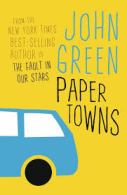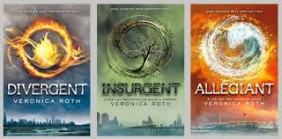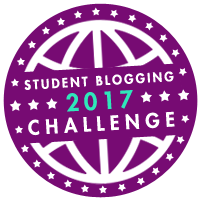Bibliophile snobbery!
I am a bibliophile! I not only love to read books but I collect them too. I still have the first book I studied in Year 8 (“All the Green Year” by Don Charlwood) as well as the two books I was allowed to bring with us when we migrated to Australia 35 years ago! I even have multiple copies of some books. My oldest book is about 100 years old and the newest only a few weeks. I am quite excited that the house I am currently renovating is the first house I have owned that is big enough for a library!!
I want my students to love books and reading too. So, I have been giving lots of thinking time to the way we do novel studies.
I still take the traditional approach of selecting a whole class text and then leading the students through a reading and on to an interpretation of themes and features. The problem with this is it is limiting. We can only do 2 or 3 books a year. Not all of the books appeal to all of the students … while I argue that not all books are read for enjoyment, we also learn from books we don’t enjoy (for me, “Hedda Gabler” fits on that list), however for teenagers if we kill the enjoyment we kill the motivation and potentially harm the chances of them reading as adults.
I am also a book snob! I am, after all, a Literature teacher. I want to pay homage to the classics. One of my year 12s recently challenged me to come up with 5 reasons why we should study Shakespeare … of course, he didn’t think I could … of course, he was proven wrong in about 30 seconds!!! I do read new fiction, including teenage fiction (I can’t recommend books if I haven’t read them) but I want to champion the old books that take us back to worlds before we were bombarded with technology (“Brave New World” by Aldous Huxley was shocking when I read it as a 16 year old, and maybe is still a little shocking now that we live with IVF and gene selection technology).
So I have embarked on an adventure. I have allowed my year 8s and 9s to choose their own books for close study this term. They could choose anything (fiction or non-fiction) as long as they could see how they might answer our essential (guiding) question …
What can I learn about life and the world from the books that I read?
I am lucky that I am back in a small rural P-12 school. I have small classes (only 15 students between the two classes). Our school culture encourages teachers to challenge themselves and take risks while trusting that they know their students and know their content.
Before the school holidays the students chose their book and we had our first reading conferences. One student chose “Divergent” by Veronica Roth, which I have read but found frustrating. In our conversation I said I didn’t like the way the society had been divided as it seemed ridiculously artificial just to create a dystopia. I was so annoyed by it I was not inspired to continue reading the series. My student countered my argument by telling me that it was deliberately artificial and unless I read the series I would never know the real reason for the divisions.
Another student chose “Paper Towns” by John Green. I was really reluctant about this choice. I had read 3/4 of ” The Fault in our Stars” and given up. I thought it was lightweight, teenage mush. I expressed my opinion but she had already started it and felt I should give her a chance to prove it was worth her time.
 So, in the holidays I did some reading. I took the advice of the first student and read “Insurgent”. I can’t wait to read “Allegiant” (a task for next weekend). I have a new appreciation for Veronica Roth – the themes /ideas she explores and the way she crafts the story.
So, in the holidays I did some reading. I took the advice of the first student and read “Insurgent”. I can’t wait to read “Allegiant” (a task for next weekend). I have a new appreciation for Veronica Roth – the themes /ideas she explores and the way she crafts the story.
I took the challenge of the second student and read “Paper Towns”. I read it in two days .. all of it! I still won’t be adding it to my list of ‘must reads’ but I did find that it challenged my thinking. I am interested to see what thoughts and wonderings the student had  while she read it.
while she read it.
So, what did I learn about life and the world?
I learnt that sometimes my year 8s are wiser than I am and that I should learn to be less of a book snob! I’m starting to think that in the end it doesn’t matter what we read, we still learn something from the experience.
School starts again tomorrow and we now begin the ‘assignment’. They have compulsory and elective tasks to help guide themselves through their chosen book. In our conferences I will also guide them to see the features and techniques used by the authors, and the themes and connections. The assessment will be an essay responding to the essential question
* * *
How do you promote a love of books and reading in your classroom?
Posted on October 2, 2016, in Uncategorized. Bookmark the permalink. 1 Comment.



Love this post, Diggers! And how exciting that you’ve been able to teach in this way for your whole class! I managed something heading towards this last year with two yr 8 extension students who ripped through the ‘Holes’ unit in a matter of a weekend. I ended up having to read one of the novels based on the ‘Assassin’s Creed’ games. I was not won over, though the student and I had some interesting conversations around adaptations and the importance of craftsmanship when it comes to writing a ‘quality’ novel!
Next time we visit, I will bring you a book 🤓